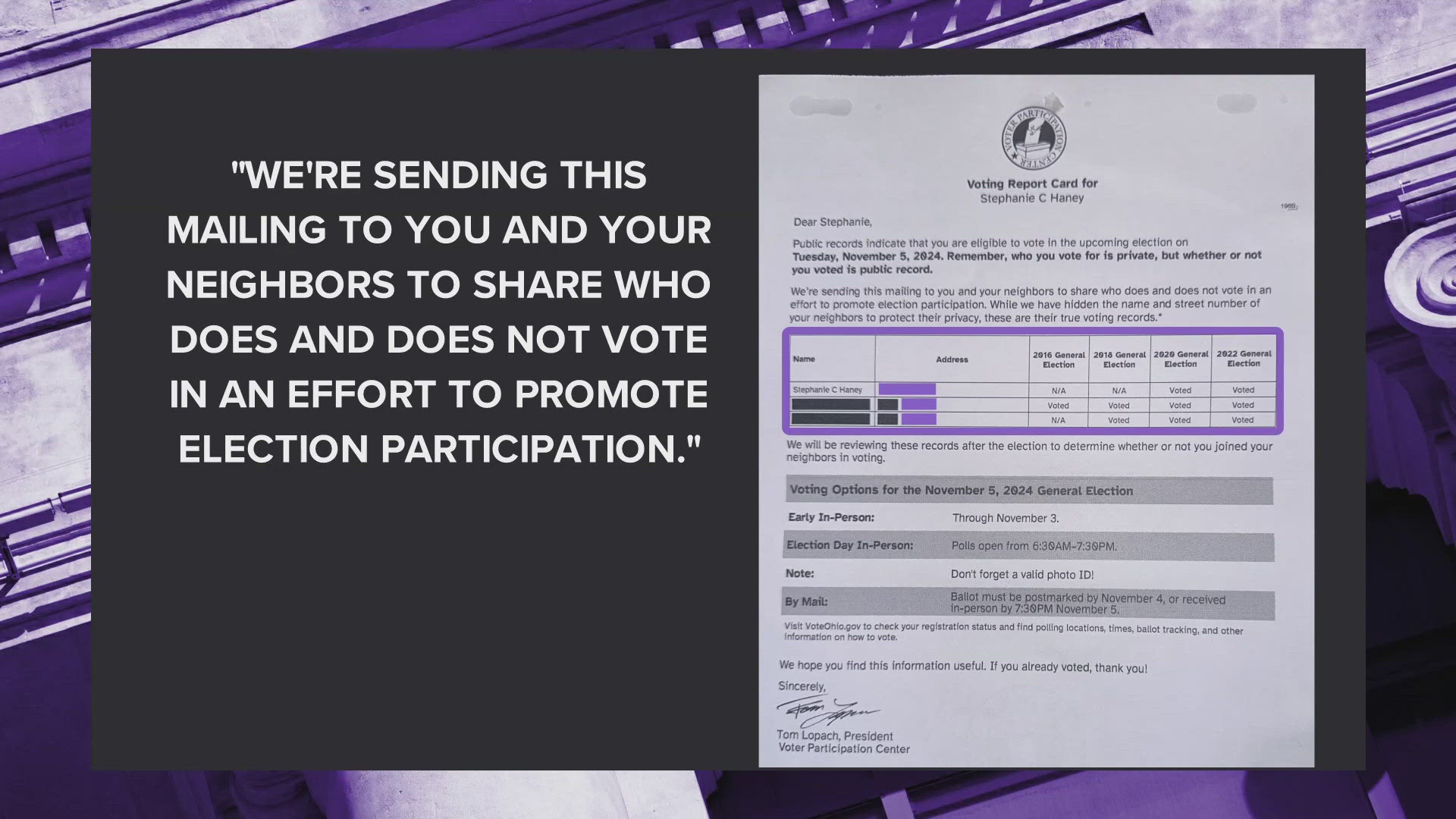CLEVELAND — Legal Analysis: In a final push to get the vote out for this year's election, you might have gotten a concerning letter in the mail including information about your voting record.
This notice was sent by the Voter Participation Center, and includes your name, address, and whether you voted in the last four elections. It also includes a note that something similar was mailed to your neighbors "to share who does and does not vote in an effort to promote election participation."
Legally Speaking, everything included in this letter is public record, so this group is free to share it, even if it makes you uncomfortable. The letter also includes voting history details about two of your neighbors, but blacks out their names and house numbers.
In Ohio, you can look up some of this voter information on the Secretary of State's website, using just someone's first and last name and the county they live in.
The search brings up their name, and address. Then, once you click on their name, it shows their polling location, what precinct they're in, and some of the districts they're eligible to vote in.
Even more information is available through Ohio's county boards of elections. In Cuyahoga County, for example, you can enter someone's last name and birth date to see party affiliation and even more voting districts. You can also expand a section to see participation history, including when and where that person has voted in the past.
There are a couple of situations that allow people to block their addresses from showing up in these databases. If you're a law enforcement official, you can request your address to be removed by submitting a form to your county board of elections office.
If you're a survivor of domestic violence, sexual battery, human trafficking, rape, or menacing by stalking, you can block your address from showing up through Ohio's Safe At Home Program. These people have to apply through an agency or organization that helps those survivors.
If these two scenarios don't apply to you, registering to vote makes all of the information we've talked about here available to the public. But remember, just like this letter says at the very top, whether or not you voted is public record, but who or what you vote for is private.
Stephanie Haney is licensed to practice law in both Ohio and California.
The information in this article and video is provided for general informational purposes only. None of the information in this article and video is offered, nor should it be construed, as legal advice on any matter.
MORE FROM LEGALLY SPEAKING:
- Ohio law protects workers who need to take time off from their jobs to vote on Election Day
- Being ruled 'incompetent to stand trial' like Bionca Ellis, De'Lawnte Hardy doesn't mean they'll avoid being in state custody
- Special prosecutor appointed to oversee Bobby George attempted murder, rape case as his attorney threatens to sue city of Cleveland over charges

